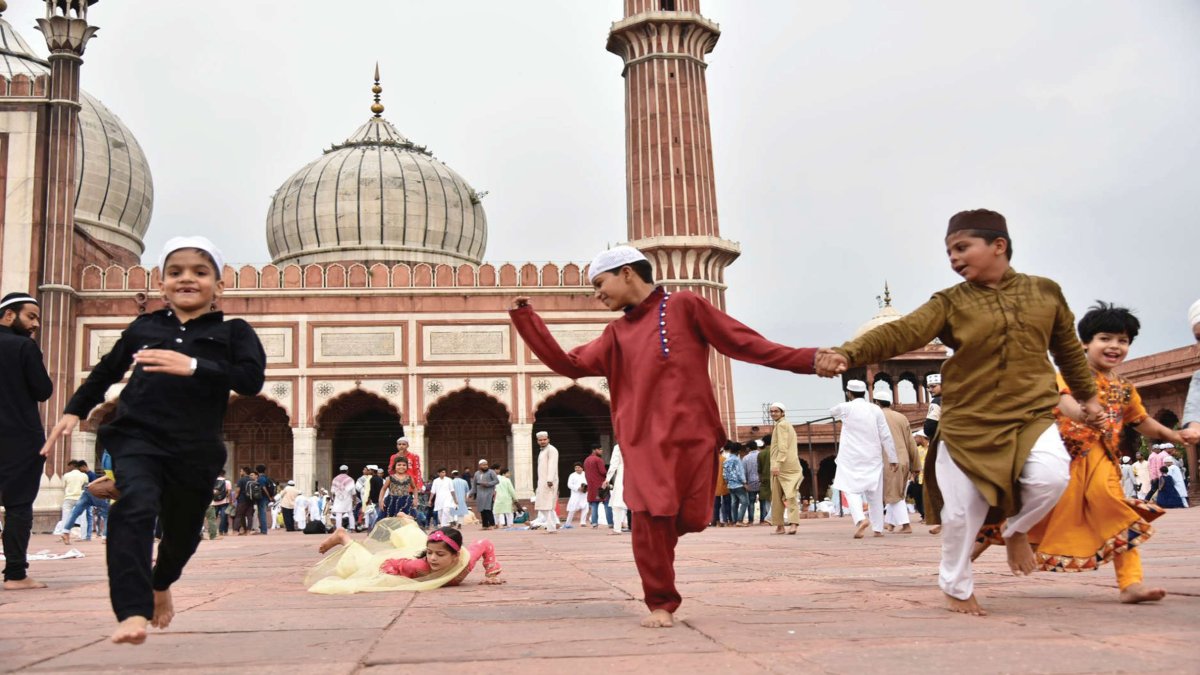
This year, the holy month of Ramzan culminated on May 12, which the Islamic world celebrates as Eid ul Fitr. Unlike its customary grandeur of communitarian feasting, divine communion and felicity, this year’s Eid celebrations remain hindered by Covid-19 protocols around the world. That said, the spirit of Ramzan and Eid spreads itself even wider and further, given that each one of us is confined to our respective dwellings with much existential reflection to do, and gratitude to hold on to. More than the Eids that have passed, this one, in particular, leaves us to ponder the outnumbering reasons why Ramzan and Eid are not just for Muslims, but for everyone, irrespective of their creed.
The ninth and holiest month in the Islamic calendar, Ramzan is said to have been the defining time when the holy Quran was revealed to Prophet Muhammad by Gabriel the angel. Stemming out from the Arabic word ar-ramad, meaning scorching heat, Ramzan signifies the annual commemoration of the Islamic holy text being revealed by means of ritualistic fasting, praying and recitals of the Quran.
Similar to the Christian period of Lent, Ramzan is an intensely meditative and reflective time, wherein the individual seeks religiosity through abstinence from temptations. However, unlike the former, which is bypassed by Baptist sects of Christianity, Ramzan makes fasting obligatory for all Muslims, barring those who are ill, pregnant, menstruating, travelling or elderly. As per Sawm, one of the five pillars of Islam, Muslims fasting during this auspicious month do so between sunrise and sunset. This means they consume a pre-dawn breakfast before fajr, the first prayer of the day. Upon the completion of the sunset prayer or Maghreb, the day’s fast is broken with iftar, the evening meal. Islamic belief often states Prophet Mohammad having broken his fast with dates and a glass of water. This might explain why it is commonplace for one to break their fast with the nutrient-dense, easily digested and glucose-rich fruit.
The practice of fasting or Sawm is driven by multidimensional meanings. Not only does Islam preach it as a means of worship that brings one closer to God, but also as a powerful way of gaining compassion towards those in need. The nutritional benefits of abstaining from food for such prolonged hours are debatable, but a more radicalisation of theories such as intermittent fasting or time-restricted eating place it on a similar scale. Similar schools of thought place their belief in the body’s extraordinary capacity to heal itself when allowed sufficient windows sans food and water. The much-needed break from digesting food helps the body concentrate its energies on detoxifying itself and reviving both physical and mental health. Similar variants of religiously prescribed fasting, such as the Hindu Navratras, Jaini Paryushan and the Jewish Yom Kippur concur to the benefits of fasting in their own relative terms.
Amongst the manifold benefits of being Indian lies the boundless plethora of cultural exposure that one is sure to experience. Be it the rich aromas wafting out of the local bakery at Easter, the Ram Leela and dance nights during Navratri, the burning of holy bonfires at Holi and Lohri, or the indulgence in bowls of seviyan kheer at Eid, India’s diverse cultures extend themselves to any passerby on the street. Fasting and feasting is a constant duality that permeates through the Indian cultural fabric, and the potency of religious salvation through greater and lesser turmoil is easily fathomable to anyone who is willing to look.
That said, 2020 and 2021 thus far have been fraught with difficulties as far as religio-cultural festivities are concerned. With the world adapting to a new format of being, perhaps the present ticking of the clock suggests we harness Ramzan wisdom in the way it presently proffers: to spend our lockdown and curfew reflecting, praying, being hopeful and compassionate towards the lesser fortunate, to restrain our impulse and material desires and direct our means to fulfil the dire want of the needy, to remain grateful for all that we are blessed with, and to channelise our belief and faith into prayer for healing.
In order to battle a viral outspread that knows no manmade discrimination, there is a dire need for us to rise up in a unity that is equally oblivious to divisions. If like me, you tend to believe in fasting being religiously prescribed to largely gain sanctioning force amongst uneducated masses, another concept is similarly imaginable. That educated masses seize those religious prescriptions in their true essence and spirit, for their fundamental purpose of collective healing. Indeed, this Ramzan belongs to everyone, and if in recent times there was a time for us to pray our hardest, now would be it.